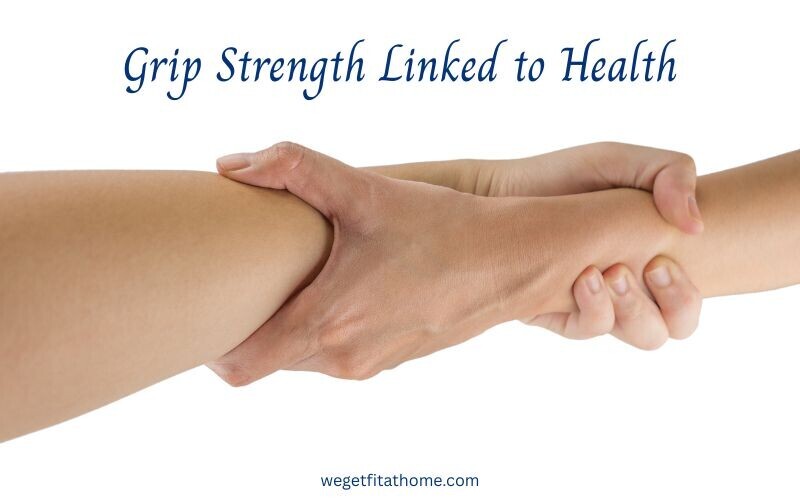As we age, maintaining strength becomes more important than ever. One area we often overlook is grip strength—but research shows it’s more than just a firm handshake. In fact, grip strength is linked to health in many surprising ways. It can predict heart health, mobility, and even how long we live.
What Is Grip Strength?
Grip strength is the force you use to hold, lift, or carry something. It’s measured by squeezing a device called a hand dynamometer. Doctors and fitness professionals often use this test to check muscle function and overall strength.
How Is Grip Strength Linked to Health?
Studies show a strong connection between grip strength and overall health. Here’s how:
1. Predicts Heart Health
People with stronger grip strength tend to have healthier hearts. Weak grip strength may signal a higher risk of heart disease.
2. Indicates Muscle Health
As we age, muscle mass declines. Grip strength offers a quick way to see how strong your muscles still are.
3. Tells Us About Longevity
Several studies show that people with stronger grip strength tend to live longer. That’s because it reflects overall body strength and health.
4. Shows Mobility and Independence
Grip strength helps with everyday tasks like opening jars or carrying groceries. Strong hands often mean more independence.
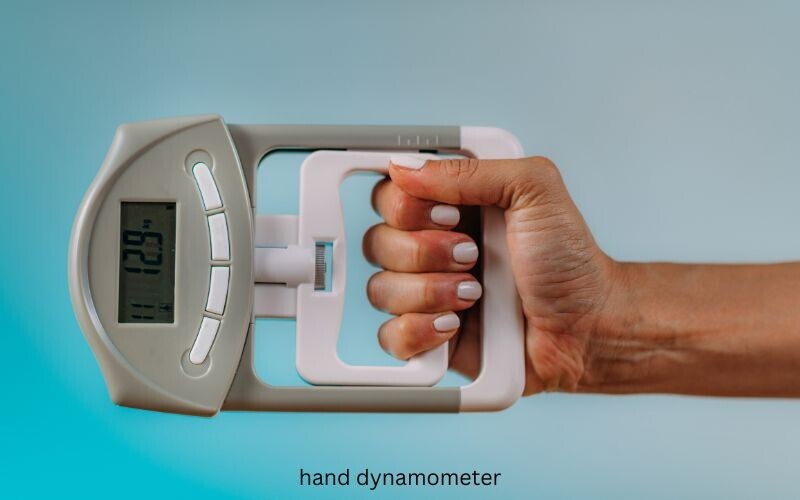
How to Measure Grip Strength
You don’t need to visit a clinic. You can measure grip strength at home. Use a hand dynamometer, a small tool that’s easy to use.
It is a simple device used to measure grip strength. You hold it in your hand and squeeze as hard as you can. The device then shows your grip strength as a number, usually in pounds or kilograms. Doctors, therapists, and fitness professionals use it to assess muscle health, especially in older adults. It’s easy to use at home and helps track strength progress over time or identify signs of weakness.
Ad
Grip Strength Tester 265lb/120kg, Digital Hand Dynamometer FDA Registered with Backlight
Check Current Price Here
Easy to read, great for home use, and affordable.
How to Improve Your Grip Strength
It’s never too late to get stronger. Try these easy exercises a few times a week.
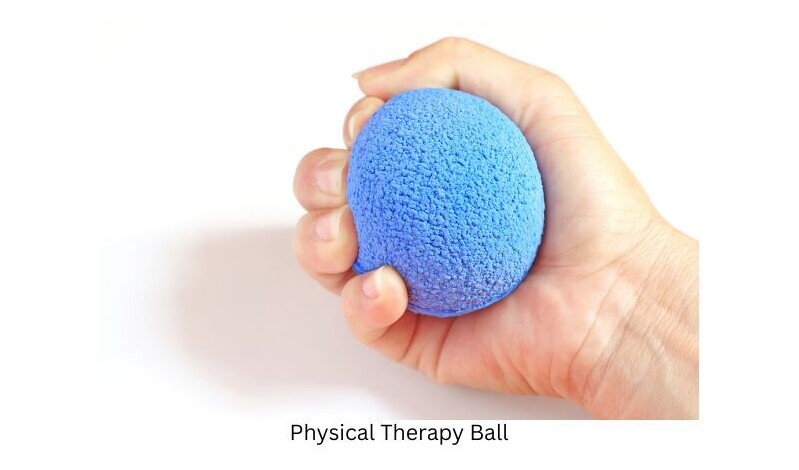
1. Hand Squeezes
Use a soft stress ball or therapy ball. Squeeze and hold for 5 seconds. Do 10–15 repetitions with each hand.
Ad
3 Pack Stress Balls, Physical Therapy Balls
Suitable for finger and grip training for musicians, rock climbing, baseball, tennis, and golf.
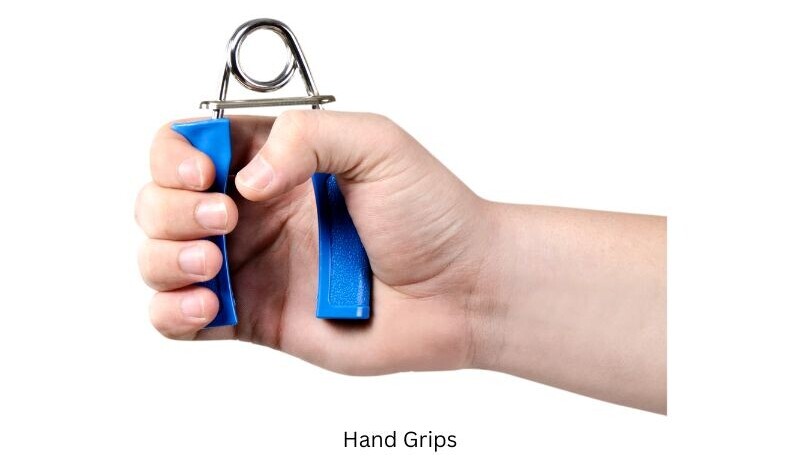
2. Resistance Grippers
These small tools are made just for building grip strength. They’re portable and simple to use.
Ad
FitBeast Grip Strengthener Forearm Strengthener Hand Grips
Includes grippers, finger exercisers, and a stress ball—perfect for seniors.
3. Hanging From a Bar
If your shoulders allow it, try hanging from a sturdy bar. Just 10–15 seconds at a time can build strength quickly.
Ad
Pull Up Bar for Doorway | Thickened Steel Max Limit 440 lbs Upper Body Fitness
Comfortable grip, anti-slip and wear resistance, can hold up to 440 lbs.
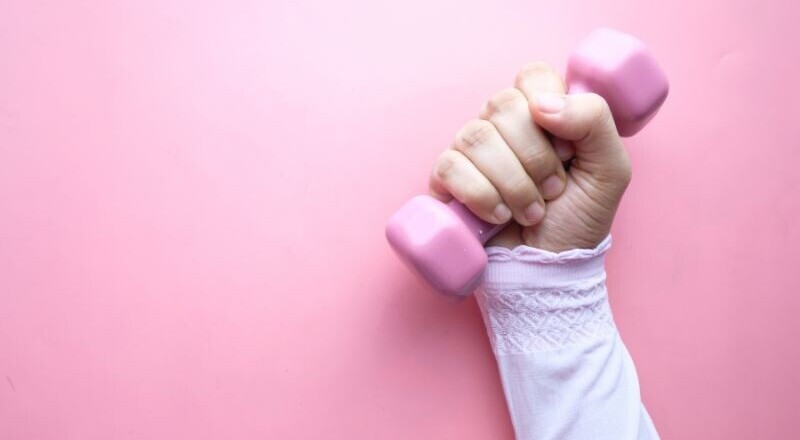
4. Carry Light Weights
Carry a small dumbbell or even a bag of groceries for short distances. This strengthens hands, wrists, and forearms.
Ad
Colored Neoprene Dumbbell Set with Rack
Multiple Weight Options – Check Current Price Here
2lb, 3lb, & 5lb total 20lb pairs Check Current Price Here
Comfortable grip and perfect for walking or standing holds.
This post contains affiliate links. If you click on and purchase through one of those links, you won’t pay a penny more, but we’ll get a small commission, which helps keep our website operating. Thanks! As an Amazon Associate, I earn from qualifying purchases.
Tips for Staying Safe
- Start slow and listen to your body.
- Don’t overdo it. Muscle soreness is okay. Pain is not.
- Ask your doctor before starting a new exercise routine, especially if you have arthritis or other joint issues.
Grip Strength Is Related to Longevity
Peripheral strength is important.
Who Should Be Concerned About Grip Strength?
Everyone. But especially adults over 60.
Researchers in at least one study define weak grip strength as:
- Less than 26 kg (57 pounds) for men
- Less than 16 kg (35 pounds) for women
If you notice your hands getting weaker, take action. It’s a warning sign that your overall strength could be declining.
The good news? It’s easy to work on grip strength, even at home. And it doesn’t take long to see results.
When to Talk to Your Doctor
If you suddenly lose grip strength, it could be a sign of something more serious, like:
- Nerve damage
- Carpal tunnel syndrome
- Muscle wasting disorders
Always speak with your doctor if you’re concerned.
Final Thoughts: Grip Strength Linked to Health
A strong grip does more than help you open a jar. It tells a story about your heart, your muscles, and your future health.
Grip strength is linked to health—and improving it is one of the easiest ways to stay strong and independent as you age.
Take a few minutes each day to train your hands. Your body—and your future—will thank you.
Disclaimer: If you have any concerns or questions about your health, you should always consult with a physician or other healthcare professional. No content on this site should be substituted for direct medical advice from your doctor or other qualified healthcare practitioner. The information contained here is for informational purposes only. It is from my research and personal experience.
Related Posts
What Are the Benefits of High Grip Strength?
How to Improve Your Grip Strength: Does Grip Strength Matter?
Top 15 Benefits of Strength Training

